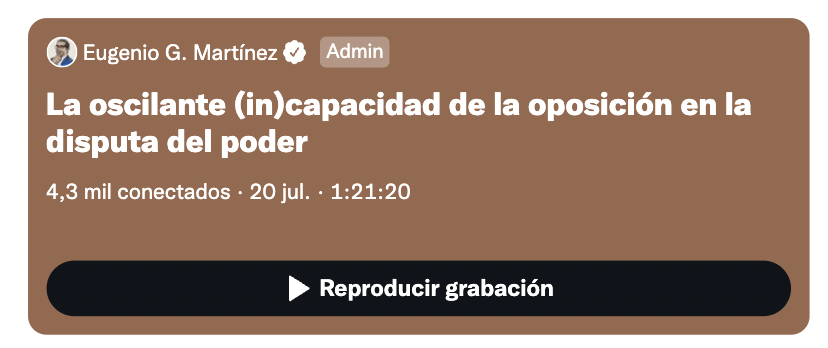| By Leonardo Vera / Carpe Diem Report On Friday, December 10, the Executive Vice-President of Venezuela, Delcy Rodríguez, introduced the Draft Budget Law for the Financial Fiscal Year 2022, for an amount of 62,379,454,806 bolivars ($13.56 billion at the official exchange rate). This bill was passed in a first and second reading in parliament in a record period of two business days. Simultaneously, the draft Law on Annual Debt for the next year’s financial year was also introduced and passed. The news is that for the first time in 5 years, the executive branch headed by Nicolás Maduro announced the Statement of Reasons of the draft Budget Law. In fact, this presentation and approval took place outside the legal period established under article 40 of the Organic Law of Financial Administration of the Public Sector. This article establishes that these bills must be introduced by October 15 each year in the National Assembly. It is noted that the bill approved lacks macroeconomic assumptions for next year. No clear estimations of inflation rate, exchange rate, and Gross Domestic Product (real or nominal) are available. No reference to the forecast of the average oil price is added. Furthermore, the oil tax contribution traditionally allocated as Income Taxes (ISLR), royalties and dividends, is hidden behind a vague concept of “Extraordinary Oil Revenues”. These Extraordinary Oil Revenues, that would represent the total contribution of the oil industry to the public budget, are estimated in the Law to amount 38 billion bolivars (US$ 8.27 billion to the official exchange rate). This amount represents 72% of current revenues and 61% of the revenue total budget. In other words, the oil-related activity accounts for the largest and most important resources estimated to finance the total expenditure budget in 2022 (US$ 13.56 billion). It is worth referring to the comparison of the oil tax contribution currently provided for in the approved Budget Law, with the contribution established in the last Budget Law announced (for the 2017 fiscal year and introduced in October 2016). According to that Law, the oil tax contribution on current revenues was 15% (and 14% on the total budget). Two questions are posed when noting these inflated estimates for 2022: ¿What is the degree of realism of this oil tax contribution? If this transfer is realized, what would be the status of the hydrocarbons industry to undertake investments? In an optimistic scenario with the Venezuelan hydrocarbons industry consolidating an oil crude production averaging about 800,000 barrels per day for 2022, at an average price for the Venezuelan basket of 60 US$/bl, and with a domestic consumption of 75,000 barrels per day, the total oil export revenues would amount to US$ 16.42 billion. Therefore, the resources contributed by the industry would represent 50% of the export gross revenues. With the current levels of activity, disinvestment, and high fixed costs per unit of output in the hydrocarbons industry, if 50% of revenues are deducted from the industry, it will endure a groveling situation for a longer period. In fact, with no major changes in the incentive scheme and standards regulating the operation of the industry, the production and income-generating scenario (amounting to US$ 16.42 billion) are unfeasible due to the lack of resources to maintain the estimated levels of the activity. Concerning non-oil revenues, the passed Law provides for Value Added Tax revenues totaling US$ 1.37 billion, non-oil tax revenue amounting to US$ 445 million, and meager taxes on imports (customs) totaling US$ 115 million. These three taxes contribute near 4 GDP points (estimating GDP near US$ 50 billion), the lowest levels for any country in the region. In contrast, two new non-ordinary revenues appear in the approved Law. This is the case of a royalty on the mining activity totaling US$ 379 million and a tax collection on financial transactions amounting to US$ 475 million. This involves the implementation of the tax on foreign currency transactions (withing financial entities), as announced by Delcy Rodríguez in late November. This tax would have a rate exceeding the Tax on Large Financial Transactions of the operations in bolivars. Generally, the approved Budget Law highlights revenues overstatement, especially regarding the contributions of the oil industry. According to our estimates, current incomes and expenses provided for in the approved Budget Law show a financial deficit of the Venezuelan State near 4 GDP points, requiring funding sources amounting to US$ 2.10 billion. Despite its low level of realism, the data seems to be manageable, but in the Venezuelan case it is a real challenge considering the country’s isolation from international markets and the little capability of the financial system to absorb domestic public debt. This ambitious issuance of public debt securities in the financial system to cover the fiscal gap would require significant changes in the monetary policy, especially in the exceptional levels of reserve requirement with which the bank operates. Lacking these changes and taking for granted these financial needs (which are very far from it), the remaining choice is the sale of debt securities of the Central Bank of Venezuela by non-financial public companies and therefore a significantly certain level of inflation tax. |
THE INFLATED ESTIMATES OF THE 2022 BUDGET LAW






